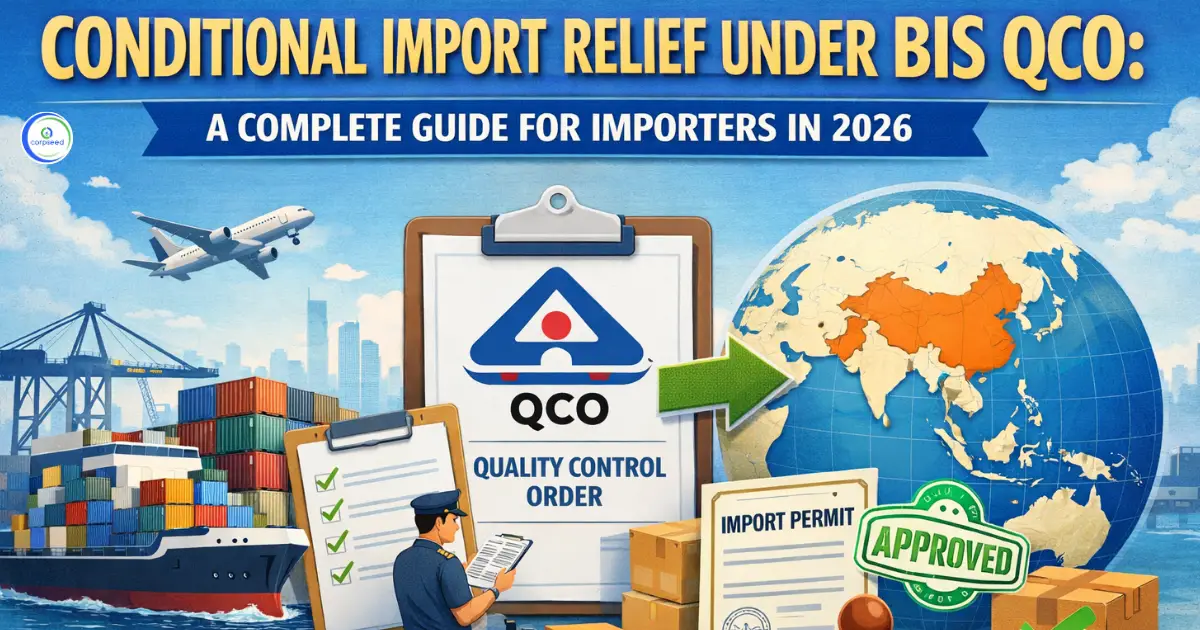The BIS (Bureau of Indian Standards) is the national standards body of India responsible for ensuring the quality of products and services. BIS certificate, often known as quality hallmark in India, certifies that a product meets specific safety, performance, and reliability standards. This certification is vital for businesses aiming to distribute high quality products to consumers while complying with government regulations. For businesses in sectors such as electronics, food, automotive, and precious metals, securing BIS registration and BIS certification is indispensable for market access and consumer confidence.
What is a BIS Certificate?
BIS certificate is a mark that specifies that the product meets the safety and quality standards set by the Bureau of Indian Standards. It ensures that all the manufacturers and importers only use products that comply with the standards set in India.
The BIS mark is broadly acknowledged and ensures consumers that the product meets the highest standards of safety and quality. Products ranging from electrical appliances to food and beverages can obtain this certification, which is essential for numerous industries to build trust among consumers. BIS certificate is mandatory for certain products but it also serves as a stamp of credibility, showing the manufacturer's commitment to quality.
Table of Contents
--------------Blog Contact Form-------------
Why is BIS Certification Mandatory?
BIS certification confirms consumer safety. It also ensures that all products meet the Indian standards. For importers and manufacturers, having a BIS certificate means:
- Wider market access.
- Legal quality compliance.
- Improved consumer trust.
- A mark of authenticity that stands out in the market.
Benefits of BIS Certificate
The BIS certificate is issued by the Bureau of Indian Standards in India. Getting BIS certificate offers numerous benefits to both businesses and consumers. Some of its key benefits include:
- Competitive Advantage: BIS certified products are more likely to gain market recognition as they are considered to be of better quality than non-certified products. This gives a competitive advantage over other brands.
- Consumer Safety: By complying with quality standards, BIS certificate helps consumers avoid harmful or substandard products. This is especially important for those products that directly affect consumer health and safety, such as food and medical devices.
- Business Expansion: For manufacturers looking to grow their business, BIS certificate opens doors to new markets. Exporting goods to India necessitates BIS registration and certification, which is an essential step for global business development.
- Legal Protection: BIS certificate serves as a legal security. Products that are not BIS certified may face fines, legal claims and elimination from the market. Certification helps businesses avoid these risks.
- Increased Marketability and Consumer Awareness: BIS certificate is a powerful marketing tool. The ISI mark boosts the visibility of the product and attracts quality conscious consumers.
- Enhanced Business Partnerships: Having BIS certificate can make a business more attractive to impending partners or investors who value product quality and regulatory compliance. This can provide opportunities for collaborations and business expansion.

Types of BIS Certificate and their Uses
BIS provides different types of certifications on the basis of nature of the product. Some of the most common certifications are:
- ISI Certification: ISI certification is the most common certification used for products like electrical goods, cement, food products and chemicals. It confirms that these products are compliant with Indian standards.
- Compulsory Registration Scheme (CRS): The CRS certification is obligatory for particular electronic products and is required for products like mobile phones, televisions and other devices.
- Hallmark Certification: This certification is for precious metals like gold and silver. BIS hallmark certifies that these metals fulfill the purity standards defined by the Bureau of Indian Standards.
- BIS License for Export: Manufacturers who want to export their products to India require to obtain BIS license to verify that their product meets the Indian standards.
BIS Certification Process
The process for obtaining BIS certification is comprehensive and involves several stages. Below is the step by step process:
- Application Submission: The first step in the certification process is to submit an application to BIS. The application must consist of all necessary information regarding the product and manufacturing procedure.
- Document Verification: BIS assesses the documents submitted by the producer. These documents include product specifications, manufacturing procedures, quality control measures and test results.
- Factory Inspection: BIS conducts a factory inspection to verify that the manufacturing processes are in conformity with the standards set by the Bureau. This step confirms that the quality of the product is maintained constantly.
- Product Testing: The product is subjected to strict testing by BIS recognized laboratories. These tests check the safety, functionality, durability and other significant factors of the product to ensure it meets the required standards.
- Certification Granting: If the product passes all the tests and fulfills the required parameters, then BIS provides certification and issues the ISI mark. Manufacturers can then display this mark on the packaging of the product, indicating its quality compliance with Indian standards.
- Surveillance and Renewal: BIS conducts periodic inspections and audits to certify that manufacturers continue to adhere to the given standards. Certification is valid for a limited period, therefore to stay compliant with the given standards the company must apply for renewal in time.
Also Read: What are the Benefits of a BIS Certificate?
Validity of the BIS Certificate
The validity of the BIS certificate is not unlimited. Once a product is certified, the certification is valid for 2 to 3 years depending on the type of certification and the specific product category. After this period, to maintain their certification status, manufacturers are required to apply for the renewal. This renewal process includes periodic examinations and audits to confirm that the manufacturer meets the BIS standards and there are no abnormalities occurred in production or quality control processes.
Format of BIS Sample Certificate

Conclusion
Obtaining BIS certification is an important step for any business looking to deliver high quality products to consumers. It ensures compliance with Indian standards, increases consumer confidence and offers a competitive edge in the market. Whether you are manufacturing electrical goods, food products or precious metals, obtaining BIS certificate can boost business success, expand product quality and protect your brand reputation. With an established reputation and commitment to quality, BIS certificate is n just a mark it is a symbol of market recognition, reliability and security in the market.
Read Our Blog:
- What is BIS Certificate?
- How to get BIS certificate
- What is BIS Certification for India?
- BIS Certification Product Testing: A Complete Review
- How to get BIS Certificate for Import in India
- BIS Registration: Apply for BIS license Online in India
- What Is BIS Certificate For Import
- How to Get BIS Certification in India
This portion of the site is for informational purposes only. The content is not legal advice. The statements and opinions are the expression of author, not corpseed, and have not been evaluated by corpseed for accuracy, completeness, or changes in the law.
BOOK A FREE CONSULTATION
Get help from an experienced legal adviser. Schedule your consultation at a time that works for you and it's absolutely FREE.



_Amendment_Order_2026_New_Compliance_Rules_Corpseed.webp)



.webp)

